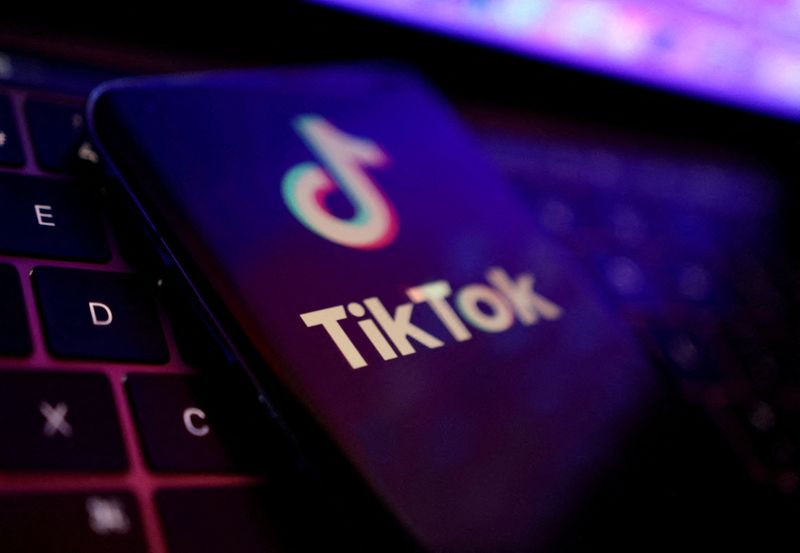By David Shepardson
WASHINGTON (Reuters) - Two U.S. senators said on Monday their efforts to tackle foreign technology threats were advancing and they will on Tuesday unveil legislation aimed at granting President Joe Biden's administration new powers to ban Chinese-owned video app TikTok and other apps that could pose security risks.
A White House spokeswoman told Reuters the administration is "working with Congress" but declined to say if it would endorse the Senate legislation.
TikTok has come under increasing fire over fears that user data could end up in the hands of the Chinese government, undermining Western security interests. TikTok Chief Executive Shou Zi Chew is due to appear before Congress on March 23.
Senator Mark Warner, a Democrat, and John Thune, a Republican and others plan on Tuesday to unveil latest in a series of proposals to give the administration new tools to ban the ByteDance-owned app used by more than 100 million Americans.
The bill is titled the "Restricting the Emergence of Security Threats that Risk Information and Communications Technology (RESTRICT) Act" and it will "comprehensively address the ongoing threat posed by technology from foreign adversaries, such as TikTok," Warner's office said.
The administration has provided input on the senators' draft legislation, a person briefed on the matter told Reuters. The White House declined to say if it would endorse the Senate bill.
Last week, the House Foreign Affairs Committee voted along party lines on a bill sponsored by Representative Michael McCaul to give Biden the power to ban TikTok after then President Donald Trump was stymied by courts in 2020 in his efforts to ban TikTok and WeChat.
Democrats opposed McCaul's bill, saying it was rushed and required due diligence through debate and consultation with experts. Some major bills aimed at China like a chips funding bill took 18 months to win approval. McCaul said he thinks the full U.S. House of Representatives could vote on bill this month.
TikTok said last week that a U.S. ban on the app would amount to "a ban on the export of American culture and values to the billion people who use our service worldwide."
The U.S. government's Committee on Foreign Investment in the United States (CFIUS), a powerful national security body, in 2020 unanimously recommended ByteDance divest TikTok because of fears that user data could be passed to China's government.
TikTok and CFIUS have been negotiating for more than two years on data security requirements. TikTok said it has spent more than $1.5 billion on rigorous data security efforts and rejects spying allegations.
